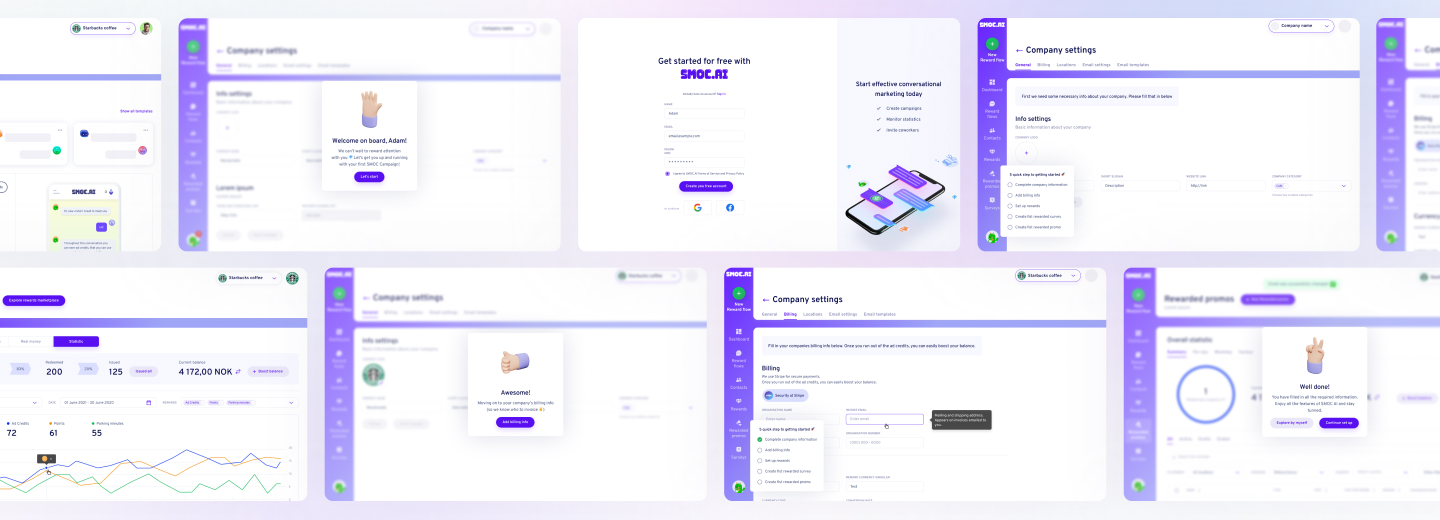The world of business and startups is quite fast-paced, and in such an environment, acronyms are all over the place; one of which may raise a question or two is POC. Although proof of concept definition business may vary based on the context, within the scope of innovation and entrepreneurship, POC most often refers to Proof of Concept. But what does POC mean in business? Why is it then so important to early-stage ventures?
When fundraising with investors, trying out a new product concept, or testing a business model, what exactly a POC is and how to get the best out of one can mean the distinction between confident progress or wasted time and resources.
This article will explain the POC meaning business, its significance, and its place in the overall start up process.
what’s in the article
- What is POC (Proof of Concept)?
- What Does POC Mean in Business?
- Why Businesses Use POC to Grow Faster
- How POC Fits into the Startup Development Lifecycle
- POC and Other Business Models
- Best Fit for POC Use
- Proof of Concept Business Plan
- How EVNE Developers Can Help Your POC
- Conclusion
What is POC (Proof of Concept)?
First, let’s find out what is POC in business? A Proof of Concept (POC) is a low-level demonstration used to test the feasibility of an idea, product, or solution on a technical level. The goal is not to create a finished product and present it to investors, it is to demonstrate that the basic idea is viable in a real-life setting. You can think of it as a mini experiment, which enables entrepreneurs and developers to test their assumptions, without spending a lot of time or money. A successful POC demonstrates that the idea is not just theory, but it is, in fact, possible to make something out of it.
What Does POC Mean in Business?
A POC business meaning is not simply a technical experiment in a business perspective but a strategic instrument. POCs are undertaken to test the prospects of a product, service, or process without a complete investment by the companies. It could be an effective option to make a startup trusted by stakeholders, to attract investors, or to find first customers.
In more significant organizations, POCs are commonly taken advantage of to evaluate the effect of new technologies or innovations prior to being expanded to teams or departments.
When and Why Startups Need a POC
Startups live in an uncertain world. A POC allows decreasing that uncertainty, demonstrating that a new idea works and could help to solve an existing problem. Ideally, a new business must create POC prior to obtaining funds, releasing a product, or expanding. It gives the much-needed feedback, exposes the technical issues at the initial stage, and prevents expensive mishaps in the future. Furthermore, a working POC can significantly improve the credibility in front of investors, partners, and customers.

Looking to Build an MVP without worries about strategy planning?
EVNE Developers is a dedicated software development team with a product mindset.
We’ll be happy to help you turn your idea into life and successfully monetize it.
Why Businesses Use POC to Grow Faster
The startup and innovation are a fast-paced world, yet accuracy is also important. A proof of concept business definition provides business with an intelligent means of expediting growth without having to operate blindly. A POC allows teams to proceed with confidence and certainty by getting ideas out of the door and into the real world as soon as possible to gather feedback. It is not a technology check but a growth strategy that saves time, generates trust and focus.
Lower Business Risks
There is never any guarantee when introducing a new product or service. A POC will assist in reducing that risk by identifying any possible shortcomings or weaknesses prior to the full-scale development. It enables founders to validate their main assumptions, discover the technical issues, and perfect their craft all in a controlled, low-risk setting. Failure fast helps businesses to prevent costly oversights and enables them to adjust when needed.
Investor Confidence
The investors don’t invest in ideas, they invest in proofs. A good POC demonstrates that your idea is viable, not only on paper. It has traction and market fit potential and a self-driven problem solving attitude. Once you have a working prototype or a proven solution, your chances of getting investors to trust you and therefore fund your project are much higher.
Faster Go-to-Market
A startup can be saved or ruined by time-to-market. A POC allows simplifying the development process since it is based only on what is most important: demonstrating the fundamental value of your product. This certainty minimizes decision-making time and eliminates unneeded loops, enabling teams to get from idea to release significantly quicker, and with more confidence.
Team Alignment
When the whole team is behind an idea that has not been tried before, confusion and lack of alignment may become a time-waster. A POC helps a whole team to be more clear and focused on what success means. It also acts as a common ground between the developers, marketers, founders, and stakeholders – assisting in ensuring that everybody is on the same page from the start.
Reduce Development Costs
It is expensive to develop a comprehensive product. A POC enables companies to eliminate waste by only verifying the most essential aspects prior to engaging in full-scale development. Teams can use this to their advantage by validating what matters early in the process and then spend their time and development finances that are important- instead of unfixed expensive mistakes down the road.
How POC Fits into the Startup Development Lifecycle
When it comes to startups, all steps on the way of development should be intentional, and one of the initial milestones is Proof of Concept (POC). Startups must be confident that their basic premise is technically possible and valuable to users before they launch into full scale development. That is where a POC steps in.
A POC usually comes after the ideation and market research, during which the problem is defined, and some rough solutions are generated. After a concept is chosen, the POC is built to prove that such a solution is possible in reality. It doesn’t have to be refined – it is a focused experiment to validate the fundamental functionality behind the product.
The place of a POC in the process of startups development is as follows:
- Validates core functionality – Tests the central idea or technology is at all possible before constructing a complete product.
- Fits between ideation and MVP -Serves as a bridge between brainstorming and a real testable version.
- Technical or market risk identification – Assists in the identification of challenges before they translate into costly issues.
- Embraces feedback and iteration – Allows teams to solicit the views of stakeholders or advisors at the early stage of the process.
- Establishes a basis of the MVP – In the event that the POC is successful, it serves as a guide of what to incorporate in the Minimum Viable Product.
With a POC involved in the beginning of the life cycle, startups will make wiser decisions, minimize resources going to waste, and have a greater opportunity to create something that actually works.

Proving the Concept for FinTech Startup with a Smart Algorithm for Detecting Subscriptions

Scaling from Prototype into a User-Friendly and Conversational Marketing Platform
POC and Other Business Models
Businesses tend to use strategic models, such as business proof of concept, prototypes, and Minimum Viable Products (MVPs) when releasing a new product or pursuing a new idea. Each has a specific role in the product development lifecycle and assists in minimizing risk, securing investment and making decisions. It is essential to comprehend the differences between these models and when to apply each of them to develop successful and scalable solutions.
POC vs Prototype vs MVP
A POC, prototype, and MVP development might appear to be similar, but they have different purposes:
- A Proof of Concept (POC) is to verify the practicability of an idea or technology. It is a low-scale, in-house test to prove an idea and then proceed with development.
- Prototype concentrates on the way the product would work. A working model that illustrates design, features and user interaction can be very helpful in gathering feedback, and iterating on the user experience.
- Minimum Viable Product (MVP) is a stripped down version of the product that only contains the bare features necessary to delight early adopters and collect feedback. It is an actual release that can be used and is meant to test the market and future development is based on how people use it.
Differences and Purposes
The primary distinctions of these models are in the following parts: goals and implementation:
- POC is about possibility: Is this something we can do?
- Prototype is experience: How will it feel and look?
- MVP is all about validation: Will people use this, and pay money?
Applying the correct model during the correct period may allow businesses to save expensive errors, enhance product-market fit and transform ideas into innovations with assurance. One step leads to a more solid foundation to the other – making the abstract concrete and leading to success.
Best Fit for POC Use
A Proof of Concept (POC) is a useful instrument to evaluate the idea to determine that it is reasonable, can be scaled, and is worth developing. It is helpful in numerous cases, but some situations take advantage of a POC particularly well. It could be product innovation, entering a new market or even starting own brand, a POC will assist in testing your supposition prior to allocating real assets.
New Product Idea
A new product is a risky venture, particularly where the idea is not tested. A POC is used to understand whether the basic idea is technically possible and capable of addressing a genuine issue. This is a clever way of first making sure the idea is viable in a controlled environment before going ahead to do a full development or release it to the market.
Entering New Market
In making a venture into a new geographic market or industry, the assumptions made relating to customer behavior, local regulations or demand, may not materialize. A POC lets companies experiment with their offering on a small scale, get used to new surroundings and receive feedback early on without incurring the expense of a complete deployment.
Tech Startup
In the case of tech startups, a POC can be the difference-maker in terms of securing investors and early partners. It shows that the basic technology is feasible and capable of providing value. What is POC? It’s the concept that demonstrates innovation and receives funding on the next stage.
Independent Business
Independent or small businesses usually have small budgets, and mitigating risks becomes a priority. Whenever making a significant investment a POC can help bring some clarity: adopting a new tool, rolling out a digital service, testing a new business model. It also enables business people to dip their toes without incurring heavy cost.

Need Checking What Your Product Market is Able to Offer?
EVNE Developers is a dedicated software development team with a product mindset.
We’ll be happy to help you turn your idea into life and successfully monetize it.
Proof of Concept Business Plan
Proof of Concept (POC) business plan establishes the foundation on which a raw idea is transformed into a possible solution. It describes the problem that you are addressing, the solution to that problem, the technology or approach behind it, and the success metrics. The idea is not to create a complete product but to prove your idea in a real-life situation. An effective POC business plan provides timelines, resource requirements, cost estimates, and risk possibilities: this way, the stakeholders will have a clear idea about your strategy and dedication.
How EVNE Developers Can Help Your POC
At EVNE Developers we excel in taking ideas at their inception stage and developing them into working proof of concept. Our team works hand-in-hand with startups, entrepreneurs, and enterprise to learn about their vision and identify the technical specifications and develop a lean and efficient proof of concept business plan that is aligned with their objectives.
Maybe you have a new software idea to prove, you want to try out a new system architecture, or you have a product that you need to prove its potential to investors we have the perfect combination of the technical and business understanding that will enable you to take the next step with confidence.
Conclusion
As you already know what does poc stand for business, it’s clear that a Proof of Concept (POC) in the hectic environment of business and startups is not limited to a technical checkpoint, but rather is an effective validation mechanism. It assists entrepreneurs, team members, and investors to determine the feasibility of an idea without engaging in a full-scale development.
A properly done POC can save time, money and increase the confidence of investors by explaining what is possible, uncovering potential obstacles upfront and showing concrete value.
If you are releasing a revolutionary product, expanding into a new market, or developing a tech-based startup, a POC can become your initial strategic victory on the way to success. Having all the answers is not important, it is important to ask the right questions and check the ground before you start building.
No. A POC is used to test the feasibility of an idea or technology whereas an MVP is a workable product with minimal features that can be used to test the market demand.
Yes. Even a failed POC will offer useful information regarding constraints or risks, preventing more significant failures in the future and informing more sensible decisions.
A POC usually lasts a couple of weeks to a few months, depending on its complexity and scope, because its goal is to showcase feasibility in the shortest amount of time possible.

About author
Roman Bondarenko is the CEO of EVNE Developers. He is an expert in software development and technological entrepreneurship and has 10+years of experience in digital transformation consulting in Healthcare, FinTech, Supply Chain and Logistics.
Author | CEO EVNE Developers


















